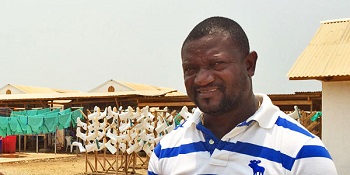
Mission: Zero Cases - How Connectivity Is Helping To Defeat Ebola
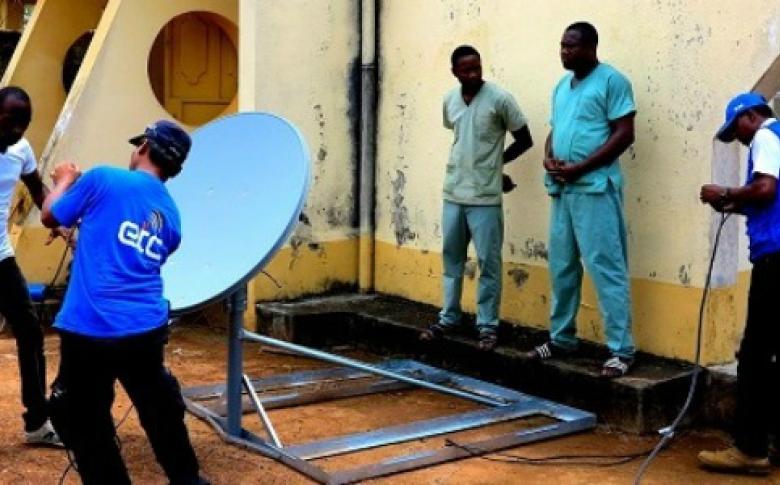
Doctors, nurses, surveillance teams, psycho-social experts, logisticians, epidemiologists, researchers, drivers, laboratory technicians, managers of Ebola Treatment Units, civil servants at the Ministries of Health, employees of Ebola Response command centres in Liberia, Sierra Leone and Guinea all have one thing in common: they have joined forces to defeat Ebola. Getting to zero cases is possible.
As a matter of fact, Liberia recently completed 42 days without a new case. However, achieving zero cases requires excellent coordination between the multitude of organisations and staff who are responding to this health crisis, whether on the frontline or in the back offices. To coordinate such a widespread effort is a daunting task in itself but can you imagine doing it without reliable and instantaneous communications?
Under the leadership of the World Food Programme, the Emergency Telecommunications Cluster (ET Cluster/ ETC), together with its partners NetHope, Ericsson Response and emergency.lu, is making sure that Ebola responders can send and receive emails, access the cloud to share key information and be reached even when they travel in remote rural locations.
Hear from the Ebola responders themselves about how connectivity provided by the ET Cluster is helping them defeat the world's largest outbreak of this disease.
Emmanuel: Port Loko, Sierra Leone

Emmanuel is managing the GOAL Ebola Treatment Unit (ETU) in Port Loko, Sierra Leone, one of the districts where new cases have been reported over the last month. Thanks to the connectivity set up by the ET Cluster, the medical team receives the blood sample results of suspect cases directly by email.
The faster this information is shared, the better for everyone. If the patient is found to have Ebola, the medical team can quickly make a decision on the treatment protocol. If the result is negative, they can accelerate the discharge of the patient, thereby also reducing his or her exposure time to other suspect cases. Internet is really making things simpler and faster for those working at ETUs.
Janet: Freetown, Sierra Leone
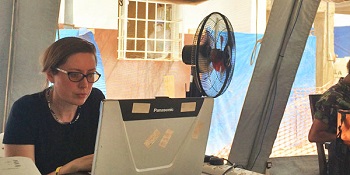
Janet, from the University of Liverpool, is conducting a medical study at the 34th Military Ebola Treatment Unit, in Freetown, Sierra Leone, on how convalescent plasma can help treat the deadly disease. She is grateful to the ET Cluster for having installed good quality Wi-Fi that covers the green and red zones of the ETU, as well as the survivors' clinic and the blood bank. "We probably could have done it without WFP, we just wouldn't have done it so easily or so well," she says.
Before that, passing patient information from the red zone to the green zone was a risk as every object taken out of the red zone was potentially contaminated. Now, this information can simply be scanned onto the cloud and the study team can immediately access the data whether they are at the ETU in Freetown or at the University in Liverpool. Such studies are key in preparing for possible future outbreaks.
Butch: Sinje, Liberia
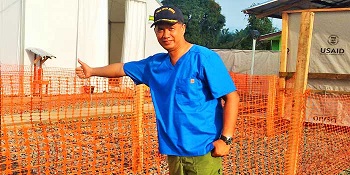
Butch is an infectious disease specialist working for the International Organization for Migration (IOM) in Sinje, Liberia, close to the Sierra Leone border. Part of his responsibilities is to manage the ETU there. Although Liberia has reach zero Ebola cases, Butch explained that the ETU will remain on standby until the rest of West Africa reaches zero cases, highlighting the fact that this is a regional crisis and that, with porous frontiers, border surveillance is a major challenge.
This is why IOM is now training local volunteers in border health screening and infection prevention control. Workshops are organised at the University of Liberia in Sinje, where the ET Cluster has set up internet connection so that trainers can access online resources. Soon, participants will also be able to use a software dedicated to border health and surveillance, demonstrating that connectivity is still critical as countries move into the recovery phase.
Nyankoye: N'zerekore, Guinea
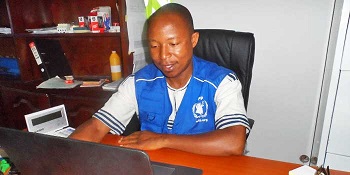
Nyankoye is a WFP assistant fleet manager. He manages the transportation of health kits for humanitarian partners. Internet is a must-have in his daily tasks. He uses it to track items being shipped, send reports and communicate with colleagues.
Logistics are at the core of the response to the Ebola crisis. In Guinea, just like in Liberia and Sierra Leone, logistics hubs, where medical and non-medical relief items are stored, have been established by the UN Mission for Ebola Emergency Response (UNMEER). UNMEER has asked the ET Cluster to take over the provision of internet connectivity at its various Logistics Bases, thereby ensuring reliable internet service to support humanitarian logistics. Nyankoye, who is working at one of them, is thankful for the prompt and continued support offered by the ET Cluster.
Emmanuel: Kambia, Sierra Leone
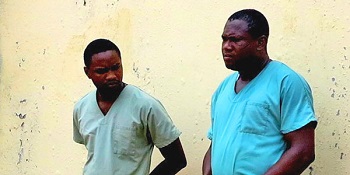
Emmanuel is a laboratory technician at the Nigerian lab supported by the World Health Organisation (WHO) in Kambia, Sierra Leone, an area where the Ebola virus is still looming. He is in charge of analysing the blood samples of suspect cases. On the day the ET Cluster came to install a satellite dish, he explained: "I cannot state how difficult it has been without the internet. We are using text messages to send results, a time-consuming and inefficient method.
We are constrained to send results to five people only when about 20 should be in the loop. There is a real gap in information sharing. Now, we will be able to send the results by email and dispatch the information much more efficiently. We will also be able to access national and district-level situation reports that we have to feed into."
In West Africa, the number of Ebola cases is declining and this is great news, but the outbreak is still not over. You can count on WFP, the ET Cluster and our partners to ensure that Ebola responders will be connected until the chain of transmission has been completely broken.
By Maud Biton, World Food Programme (WFP), deployed as ETC West Africa IM Officer
Cover photo: IT specialists at WFP/ET Cluster point a satellite dish that will provide internet connectivity. (Photo:WFP/Maud Biton)